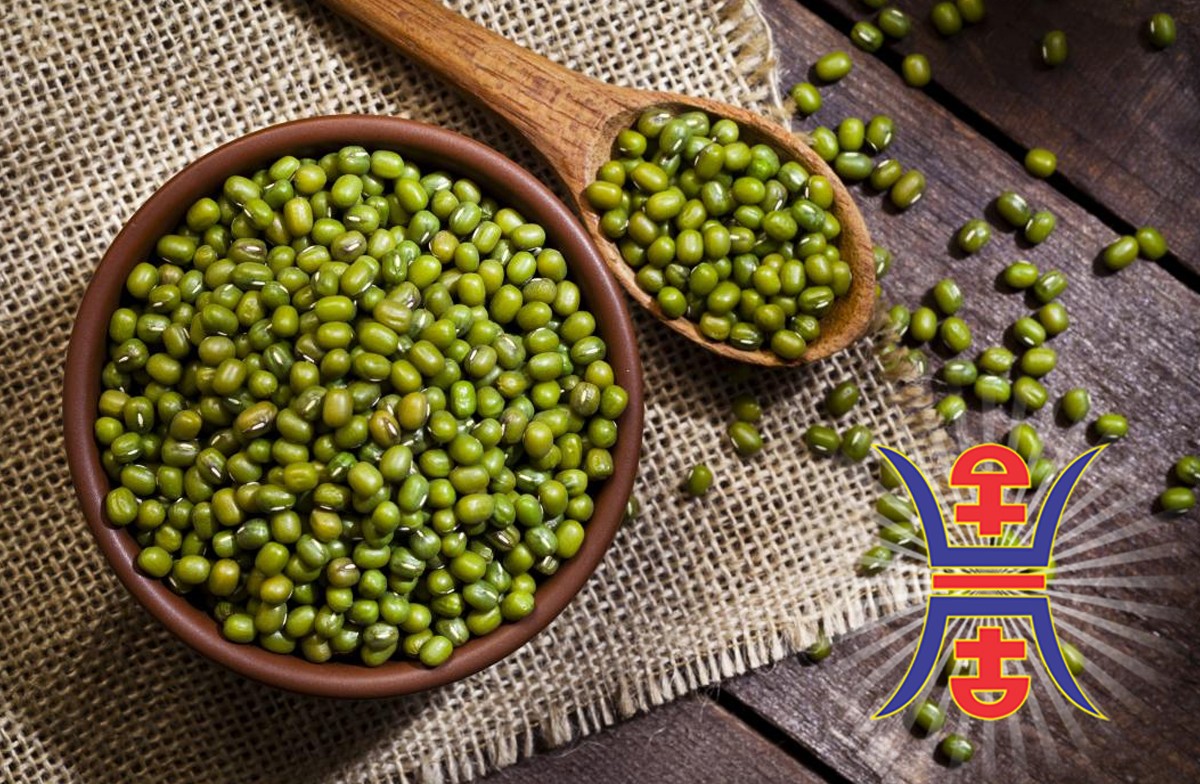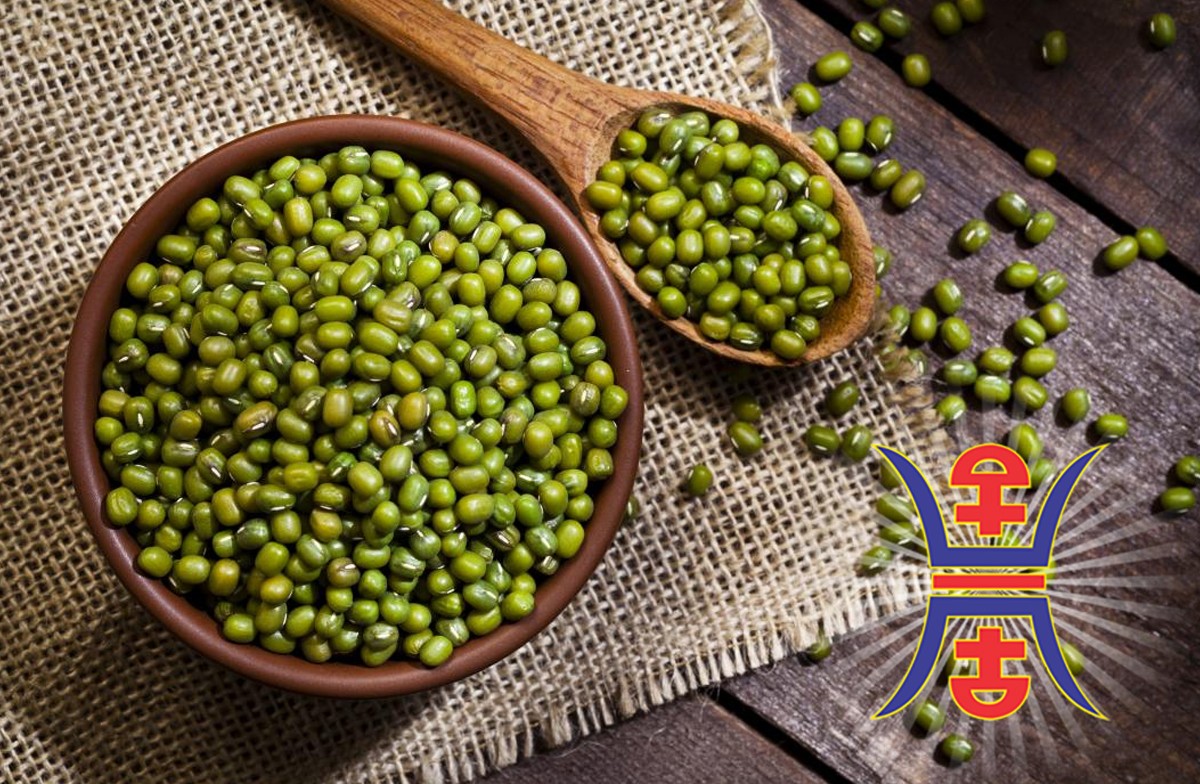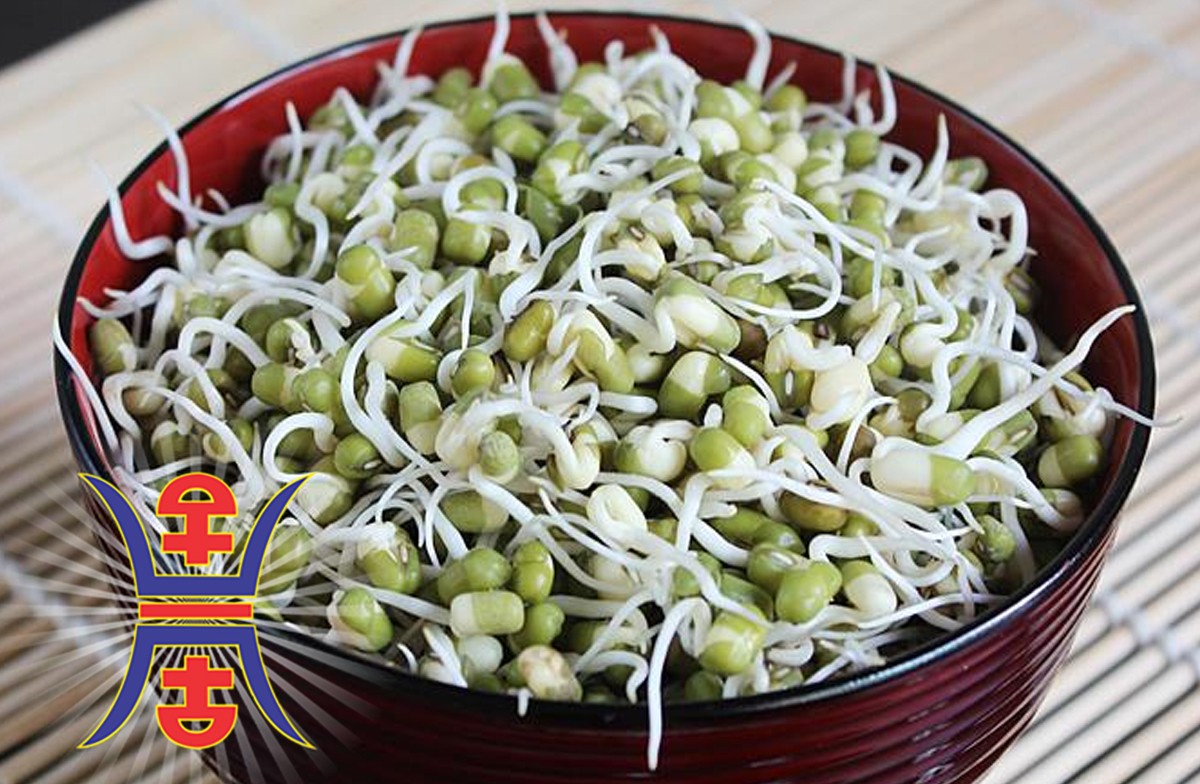Mung Bean
In natural health, mung beans are considered a cooling food that can help to balance the body's internal temperature and promote detoxification. Here are some of the ways that mung beans are used in natural health:
- Clearing heat: Mung beans are believed to have a cooling effect on the body, which makes them useful in natural health for clearing heat and reducing inflammation. They are often used to treat conditions such as fever, sore throat, and skin rashes.
- Promoting digestion: Mung beans are considered easy to digest and are often used in natural health to promote digestion and relieve symptoms such as bloating and gas.
- Detoxification: Mung beans are believed to help cleanse the body of toxins and promote overall health. They are often used in natural health to support the liver and kidney function and to treat conditions such as acne, eczema, and other skin disorders.
- Promoting urination: Mung beans are considered a diuretic in natural health and are often used to promote urination and help reduce water retention in the body.
- Nutritional benefits: Mung beans are also rich in vitamins, minerals, and other nutrients that are important for overall health. They are a good source of protein, fiber, iron, and potassium.
In natural health, mung beans can be consumed in a variety of forms, including as a soup, porridge, or tea. They are also commonly used in Asian cuisine as an ingredient in salads, stir-fries, and other dishes. It's important to note that while mung beans can provide many health benefits, they should be consumed in moderation as part of a balanced diet.
Mung beans nutritional benefits:
Mung beans are a nutrient-dense food and provide several health benefits. Here are some of the nutritional benefits of mung beans:
- High in protein: Mung beans are a rich source of plant-based protein, providing about 14 grams of protein per cooked cup (about 202 grams).
- Good source of fiber: Mung beans are a good source of both soluble and insoluble fiber, which can help promote digestive health, lower cholesterol levels, and regulate blood sugar levels.
- Low in fat: Mung beans are low in fat and contain no cholesterol, making them a heart-healthy food choice.
- Rich in vitamins and minerals: Mung beans are a good source of several important vitamins and minerals, including folate, iron, magnesium, and potassium. They also contain small amounts of calcium, zinc, and vitamin C.
- Antioxidant-rich: Mung beans contain several antioxidants, including flavonoids and phenolic acids, which can help protect against cell damage and inflammation in the body.
- Low in calories: Mung beans are a low-calorie food, with only about 105 calories per cooked cup. This makes them a good food choice for people who are trying to lose weight or maintain a healthy weight.
Mung beans can be consumed in a variety of forms, including as a soup, salad, or stir-fry ingredient. When choosing mung bean products, it's important to look for minimally processed options without added sugars or other additives. Overall, mung beans can be a nutritious and beneficial addition to a healthy, balanced diet.
Who should take mung beans:
Mung beans are a healthy food that can be enjoyed by most people as part of a balanced diet. Here are some groups of people who may particularly benefit from including mung beans in their diet:
- Vegetarians and vegans: Mung beans are a good source of plant-based protein, making them a great food choice for individuals who follow a vegetarian or vegan diet.
- People with diabetes: Mung beans have a low glycemic index, which means they can help regulate blood sugar levels and may be beneficial for individuals with diabetes. The high fiber content in mung beans can also help slow down the absorption of carbohydrates in the body, which can help prevent spikes in blood sugar levels.
- People with high cholesterol: The soluble fiber in mung beans can help lower cholesterol levels by binding to cholesterol in the gut and preventing it from being absorbed into the bloodstream. This can help reduce the risk of heart disease and stroke.
- Athletes and active individuals: Mung beans are a good source of carbohydrates and protein, which can help fuel the body during exercise and aid in muscle recovery.
- People with digestive issues: The high fiber content in mung beans can help promote regular bowel movements and improve overall digestive health. Mung beans are also easy to digest, which makes them a good food choice for individuals with digestive issues such as bloating or constipation.
In general, mung beans can be a nutritious and beneficial addition to a healthy diet for most people. However, it's important to consume mung beans as part of a balanced diet and in moderation to ensure optimal health benefits.
Who should not take mung beans:
While mung beans are a healthy food that can be enjoyed by most people as part of a balanced diet, there may be some individuals who should avoid or limit their consumption of mung beans. Here are some groups of people who may need to be cautious with mung bean consumption:
- Allergy: People who are allergic to legumes, such as peanuts or soybeans, may also be allergic to mung beans. If you have a legume allergy, it's best to avoid mung beans or speak to your doctor before consuming them.
- G6PD deficiency: Some individuals with glucose-6-phosphate dehydrogenase (G6PD) deficiency, a genetic disorder that affects red blood cells, may need to avoid mung beans or other legumes. This is because mung beans contain certain compounds that can trigger hemolysis (the breakdown of red blood cells) in people with this condition.
- Digestive issues: Some people may experience digestive issues such as bloating, gas, or diarrhea after consuming mung beans. This may be due to the high fiber content in mung beans. If you have digestive issues, it's best to start with a small amount of mung beans and gradually increase your intake to help your body adjust.
- Kidney stones: Mung beans contain oxalates, which can contribute to the formation of kidney stones in some individuals. If you have a history of kidney stones, it's best to limit your consumption of mung beans.
- Pregnancy: Mung beans are generally considered safe during pregnancy, but pregnant women should consult with their healthcare provider before adding mung beans to their diet.
It's important to note that these groups of people should not necessarily avoid mung beans altogether, but rather should consult with a healthcare provider before consuming them to determine if it's safe and appropriate for their individual health needs.
In Person With Heshoutang Members
With Heshoutang Online Members
Fill Out the Questionnaire by yourself
When you subscribe to the blog, we will send you an e-mail when there are new updates on the site so you wouldn't miss them.

















Comments